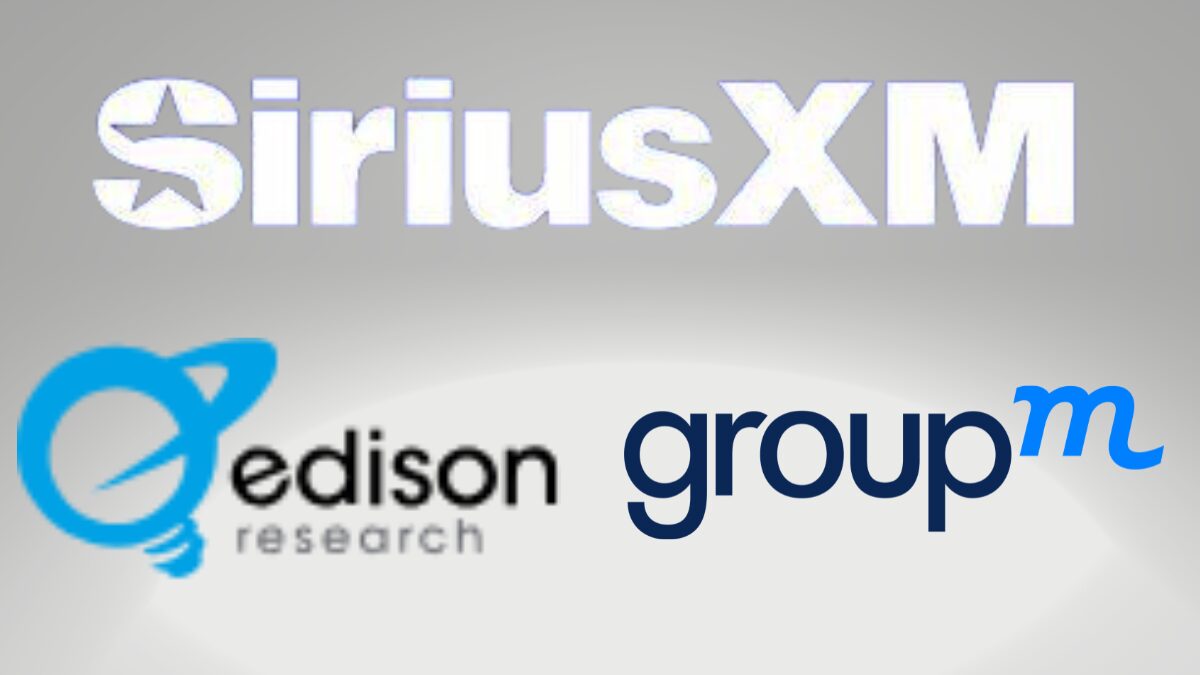Sports Radio News
Shulman Values ESPN Role
Published
9 years agoon

Dick Vitale and Jay Bilas may be college basketball’s household names when it comes to television, and that’s just fine with one of the best and most versatile play-by-play men in the business.
“I’m exactly where I want to be,” said Dan Shulman.
As ESPN’s lead announcer for college hoops, the 47-year-old Canadian will be courtside with Bilas on Saturday night when top-ranked Kentucky meets Florida in Gainesville.
So how did a Canadian become the World Wide Leader’s top play-by-play man on two of its biggest sports?
Shulman worked three years at the University of Western Ontario campus radio station before graduating in 1990 with a degree in actuarial science. Six months as an actuary, however, caused him to try radio full-time.
He started at a station in Barrie, Ontario, 50 miles north of Toronto. A year and a half later, Shulman moved to a Toronto sports station. Five years after that, he transitioned into television where he did the Toronto Blue Jays games for seven years.
It was seeing him work the World Basketball Championships, however, that caused ESPN to hire Shulman in 1995 for college basketball. He began working exclusively for ESPN in 2002. He became Sunday Night Baseball’s lead announcer in 2011.
Major League Baseball ends just as college basketball begins, which makes for a heavy travel schedule.
“I estimate I sleep in a hotel room about 140 nights a year,” said Shulman via phone Thursday from his home in Canada. “The travel part is not glamorous, but it’s a means to an end. I’m blessed to have the job that I do.”
Wait a minute; aren’t all Canadians crazy hockey fans?
“As a young kid, hockey was the only thing I knew,” Shulman said. “I was 10 when the Blue Jays came to Toronto and I was hooked on baseball from the day they got here.”
Shulman played high school basketball, but his first exposure to American college basketball came when his family visited his grandparents in Florida for spring break.
“This was March of ’83, the year where North Carolina State made the Cinderella run and won the national championship,” said Shulman. “I was hooked. Everybody else was going to the beach and I’m just sitting and watching basketball all day.”
He is also a huge football fan — his favorite team being the Green Bay Packers, so Shulman is “still stinging” from the NFC Championship game loss to the Seahawks.
“If my career had taken a different bounce, I could have just as easily been a hockey/football guy,” Shulman said.
Instead, he is a baseball/college basketball guy.
“Sometimes people will come up to me and know me as a baseball guy and hardly even know I do basketball,” Shulman said. “Sometimes people will come up to me as a basketball guy and hardly even know I do baseball.”
The pace of the two sports is different, presenting unique play-by-play challenges.
“I liken it to during baseball season, I’m walking on a treadmill, then on Nov. 8, or whatever it is, someone triples the speed of the treadmill and I’ve got to get going fast,” he said. “I’m equally comfortable doing both, to be honest with you.”
He’s also comfortable working with different partners. Shulman said his goal is to get the most out of his analysts. It shows.
“One of the producers I work with makes the analogy that we’re a basketball team and I’m a pass-first point guard,” Shulman said. “That to me is about the highest praise I can get. I don’t need to make the basket, I prefer the assist.”
He sometimes gets an assist on the road. Two of his three boys are huge sports fans. His 14-year-old wants to visit all 30 Major League Baseball parks. (He’s at 19.) His 21-year-old is looking forward to attending the ACC Tournament in March.
“It kind of alleviates some of the loneliness for me from being gone so much,” Shulman said. “If I can take my kids with me and show them a really good time that’s a good thing for everybody.”
Just as making that career switch was a very good thing for a certain Canadian.
“I love being a play-by-play announcer for games,” Shulman said. “I’m lucky that the thing I wanted to do is the thing they hired me to do and they’ve allowed me to keep doing it.”
Credit to the Lexington Herald-Leader who originally posted this article
Jason Barrett is the owner and operator of Barrett Sports Media. Prior to launching BSM he served as a sports radio programmer, launching brands such as 95.7 The Game in San Francisco and 101 ESPN in St. Louis. He has also produced national shows for ESPN Radio including GameNight and the Dan Patrick Show. You can find him on Twitter @SportsRadioPD or reach him by email at [email protected].
Sports Radio News
Spike Eskin Introduces Rules for Callers on WIP Afternoon Show
“A polite society, an organized society, a civilization has rules, and we will have rules for calling the WIP Afternoon Show.”
Published
12 hours agoon
April 17, 2024By
BSM Staff
Earlier in the week, Audacy announced that it hired Ryan Hurley to serve as the brand manager of WFAN and Infinity Sports Network, officially naming a successor to Spike Eskin and allowing him to begin his role on the afternoon drive program with SportsRadio 94WIP. Eskin officially made his on-air debut on Monday where the show discussed a variety of sports teams in the area, including the Philadelphia Eagles and Philadelphia 76ers. On Tuesday, the show continued its sports discussion but also introduced new facets to its structure, including a list of rules by which callers will need to abide in order to be featured on the WIP Afternoon Show.
Named the “Bill of Spike,” the document of six rules was revealed by Eskin during the broadcast, each of which was followed by a subsequent explanation. Before he began to read from the list, which he stated is non-negotiable, he provided his rationale as to why he was implementing these regulations within the program.
“Some things have gotten out of hand,” Eskin said. “There is a new sheriff in town. We need some rules. It is with great respect and honor that I introduce the Bill of Spike, the rules for calling the WIP Afternoon Show. A polite society, an organized society, a civilization has rules, and we will have rules for calling the WIP Afternoon Show.”
The first rule on the list mandates that callers must reach their point immediately. Even if the primary topic does not pertain to sports, it is essential that they begin discussing it upon being placed on the air. Should a caller have an issue with another listener of the show, the program will eventually get to it, but it will not be the first thing.
“Rule No. 2 – please do not ask how we are doing,” Eskin continued. “We’re great. We’re having such a good time. This is such a good job; it is silly; we all like each other. You don’t need to ask us.”
Eskin also added that if a team lost the game on the day before, it should be obvious that the hosts are not doing well. They will likely express those sentiments on the air within their discussion about the games and teams as well. When they are speaking with a listener though, Eskin made sure to inform them that they should not be calling into the show on speakerphone.
“If you’re on a speakerphone, just take the L,” Eskin said. “Do not ask us for a second to take us off speakerphone. We’ve already hung up; I’m already on to the next caller.”
The new 94WIP Afternoon Show has 6 rules for the callers. pic.twitter.com/PpsiMvCb6B
— SPORTSRADIO 94WIP (@SportsRadioWIP) April 17, 2024
The fourth rule on the list reads, “Don’t tell me the rules, I’ll tell you the rules,” something Eskin highlighted because there have been several callers who have questioned specific rules. Instead, he wanted to make it clear that he would be informing the callers of the rules rather than it being the other way around. He then proceeded to outline the fifth rule on the list, which specifically mentions how listeners should address Eskin, co-host Ike Reese and producer Jack Fritz.
“You can greet the hosts in any order possible, but please, limit the times you passive-aggressively do not say hello to one of us,” Eskin said. “I can see what you’re doing if you call up and you say hi to Ike and Jack and don’t mention me; you say hi to Jack [and] don’t mention me and Ike, so and so. We’re not doing that – we’re all friends here. If you’re going to say hi, say hi to all three of us. You don’t have to say hi to anybody by the way – you can just go.”
Fritz asked a follow-up question to Eskin regarding this rule pertaining to what would happen if a caller specifically asked for his takes about the Phillies. In response, Eskin said that he would drop the call, leading to Reese to provide his input on this directive.
“I have seen that scenario happen before where somebody has called up and said, ‘I just want to get Jack’s opinion on the Phillies,’” Reese said. “Now me, it doesn’t offend me at all – I’m like, ‘Go right ahead.’”
“You know what?,” Eskin replied. “I’m going to change my opinion. If you greet all three hosts and you want to ask Jack something specific about the Phillies, we can let that slide.”
The final rule within the “Bill of Spike” is that callers are not allowed to say that any of the hosts only received the job because of their father. Spike Eskin is the son of Howard Eskin, who was a longtime host on SportsRadio 94WIP and continues to appear across its programming while sideline reporting for its broadcast of Eagles football. Even so, Spike Eskin said he was standing up for everyone on the show with this rule on the bill, concluding the list and commencing a new era in afternoons on the station.
“The Bill of Spike – the rules are ingrained,” Eskin said. “They are in stone, they are posted on the wall, they are tattooed on my abdomen.”
While Reese believes that Eskin did an adequate job crafting the bill, he believes that the callers are going to initially fight against the mandate. After some time though, he thinks that they will conform to the rules about calling into the show.
“They will fall in line,” Eskin said, “or they will fall out of order; out of the rotation.”
Sports Radio News
Rob ‘WorldWideWob’ Perez Joins SiriusXM NBA Radio
“After so many years as a listener, it’s an honor to join SiriusXM NBA Radio as a host.”
Published
14 hours agoon
April 17, 2024By
BSM Staff
SiriusXM announced that popular social media personality Rob ‘WorldWideWob’ Perez is joining the talent roster on the NBA Radio channel. Perez and his X account, @WorldWideWob, have more than a million followers.
Perez will host SiriusXM NBA Radio’s live postgame show multiple nights each week through the Playoffs, reacting to the results and standout performances, interviewing players and taking calls from fans across the country.
“After so many years as a listener, it’s an honor to join SiriusXM NBA Radio as a host,” said Perez in a release. “There aren’t many late-night postgame shows like this one that are able to connect with fans and capture the emotion of the night’s wins and losses, so I’m quite excited for this opportunity. Being a voice of the NBA fan has been a strength and a passion for me, and I’m looking forward to bringing to that to the air.”
SiriusXM will once again have live play-by-play broadcasts of each game throughout the NBA playoffs.
Sports Radio News
SiriusXM Media, GroupM and Edison Research Team Up for Sports Audio Report
The report notes sports fans spend six hours and 26 minutes with audio content each day—that’s over two hours more than the average American spends listening to audio.
Published
18 hours agoon
April 17, 2024By
BSM Staff
SiriusXM Media, GroupM and Edison Research recently conducted the first-ever Sports Audio Report to understand the role that audio content, across sports podcasts, satellite, and radio shows, plays in fans’ engagement with sports and leagues. Through an online study of over 3,500 Americans ages 13 and older who self-identify as sports fans, some solid insights were identified.
One major note from the study is that a massive 89% of sports fans say they frequently or occasionally watch sports content, while 64% say they frequently or occasionally listen to sports content.
“The passion and community of sports fans is undeniable, and we’re excited to share brand-new research that not only confirms this but shows the power of audio content for sports fans as well,” said Melissa Paris, VP Sales Research at SiriusXM Media. “Our new report with GroupM and Edison Research shows that audio offers sports fans unique perspectives on sports that aren’t covered in other media. And advertisers should take note: Sports audio listeners (especially podcast listeners) are spending significantly more than sports video viewers.”
“There is a deep connection between listeners and the audio content they consume, whether it’s music, sports, talk shows, books or podcasts,” said Jen Soch, Executive Director, Channel Solutions, GroupM US. “Many times, audio audiences find content related to their interests and passions, and we know sports fans’ zeal is unmatched. Audio is a critical component of holistic media investments, and it needs to be a top consideration for brands looking to extend their reach and overall presence in sports.”
While baseball has been labeled “America’s favorite pastime,” the study found that the NFL dominates as the most popular sport or league—90% of sports fans ages 13+ are NFL fans, with 59% saying they follow it closely. College football is not far behind, with 74% of those surveyed identifying as fans and 37% following closely.
The report notes sports fans spend six hours and 26 minutes with audio content each day—that’s over two hours more than the average American spends listening to audio. And over 90 minutes of sports fans’ daily audio time is spent listening to sports content specifically. While sports radio leads for Gen X and boomer fans, sports podcasts lead the way for Gen Z and millennials.
Other audio highlights from the first Sports Audio Report include:
- 66% of sports listeners say they listen to hear unique perspectives on sports that aren’t covered in other media, and 60% listen to get exclusive content.
- 86% of sports listeners say they listen to stay connected to their team or sport, 58% to be part of a community of fans, and 56% to feel more connected to friends/family/colleagues.
- 52% of sports listeners say they listen to be a more informed sports bettor, and 44% to be a more informed fantasy sports player.
From a financial standpoint, the study showed that compared to sports video viewers, sports audio listeners are bigger spenders. They spend an average of $262 on sports merch/memorabilia in a year (even higher for sports podcast listeners at $321), compared to just $185 for sports video viewers.















